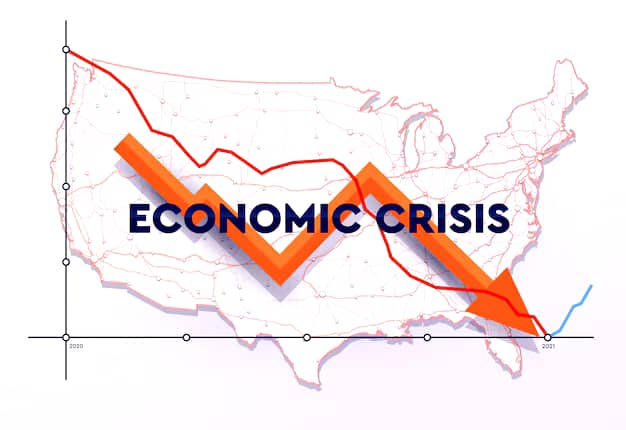Except you’ve been living under a rock, you are probably aware of the wave of protests that swept through Kenya and made its way to Nigeria. Scratch that, you don’t need to live under a rock not to be aware of the protests in Africa. I currently live in a country where a good number of people are not sure if Africa is a country and Nigeria is a city or whatever the dynamics of the relationship may be. That being said, the current wave of protests in Africa is indicative of the economic conditions in the region, with the Nigerian Entrepreneur at the centre of it all.
I have argued that political crises are not unrelated to economic crises. While I am not certain what the economic condition was in 1967, I am inclined to believe the Nigerian civil war may have occurred during a period of economic uncertainty.

In 2020, the wave of protests in Nigeria that culminated in a massacre of young, innocent lives by the Buhari-led administration was not unrelated to the economic hardship that had been triggered by the COVID-19 pandemic.
The Nigerian Entrepreneur and the Struggle of a Subsistence Economy
Nigeria, being a subsistence-driven economy could not put up with the conditions that came with the global lockdown. The government, on the other hand, could simply not afford to mail cheques to its citizens as was the case in Western economies and we (some of us) know what followed next.
The Dilemma of a Nigerian Entrepreneur
That was my attempt at setting a backdrop of the current economic situation in Nigeria. This time, it’s the fuel subsidies. The Tinubu-led administration had barely set foot in office before cutting off fuel subsidies, claiming it would be the panacea for the foreign exchange drought that had plagued the country for many years running. One year after the subsidy removal, the Nigerian Naira is still in free fall, and the policy may have woken a sleeping hydra that includes food shortage, transportation challenges and possibly driving the mass emigration popularly known as ‘japa’.

What is the path forward for the Nigerian Entrepreneur?
However, it’s not all doom and gloom. Historically, periods of economic crises are inflection points in a country’s history as they tend to birth new industries, support the growth of others and overall influence an efficient allocation of resources. There has been debate about capital surplus being responsible for the misallocation of resources. If you are an entrepreneur doing business in Nigeria and possibly across the continent, I suggest you use these questions as a guide for increased efficiency during this period of economic headwinds.
What should you be producing?
Developed countries tend to have the majority of their GDP driven by services as opposed to manual sectors like Agriculture.

In the past, economies had to go through the industrial phase before digitising, but the internet has changed everything. While most African economies are yet to become industrial/manufacturing hubs, we can take advantage of the internet to leapfrog that phase by digitising our services and potentially exporting them within the continent or possibly to Western economies to solve the foreign exchange crunch that’s biting us hard.

In deciding what to produce, it’s important to find where the incentives lie, it could be the cheaper cost of labour to produce on the continent or the high-inflation-high-interest rate environment that provides an incentive for investing in financial instruments. Also, consider investing in research as economic crises influence changes in consumer behaviour, hence what was attainable in the previous year may be irrelevant in the coming year. By staying on the pulse of consumer behaviour, you will be protecting your market share.
How should you produce?
If you are in a service-led business, this is a crucial time to productivise your service(s). Remember that consumers are looking for cheaper products. Think about your service in terms of SKUs and consider breaking them into the smallest units aka sachets. For example, if you are a PR Consultant (like me) you need to cost for all the services you provide, down to proofreading or pitching.

The keyword for production is efficiency. Do you know the optimal amount of employees you need to deliver a service? Any more than that may lead to wastage and any less could mean revenue loss. Bear in mind that consumers are also looking for cheaper substitutes for the service/product you provide and you may need to consider how to provide substitute services to gain market share.
For whom should you produce?
Economic crisis tends to affect the poor and middle-income earners while the rich tend to protect the rich. Although I will argue that Nigeria is an aberration. Ever heard the saying, “Nigeria will happen to you.” Nigeria’s dysfunction has no respect for socio-economic class. We may be a country of inequalities but the chaos reaches everybody equally. Consider how sustainable it is to fly abroad each time for medical attention, but I digress.

In an environment where more people are going below the poverty line, you need to be careful not to price out your market while adjusting for the cost of production. Again, think of substitutes. Can you provide a cheaper service for the same price? Which service has the larger customer base and what can you do to extend the reach? This may not be the time for creating premium, bespoke services as customers are hunting for value and discounts. It is advisable to cue in promo periods into your marketing campaigns.
Lastly, I’ll leave you with this question, think of it as a bonus question; should this be a period of diversification or consolidation? I’d love to hear your thoughts.
Love & Amala,
P. Nwachukwu
About the writer

Precious Nwachukwu, an MBA graduate from the University of Edinburgh, has a decade of international experience in PR and corporate communication, notably enhancing MTN Nigeria’s market cap and leading successful rebranding at Sterling Bank. She’s recognized among Nigeria’s top 50 PR professionals. She also co-chairs the NextGen Committee at PRCA Scotland.

One Response
Africa is largely driven by what I would call a single digit focus- oil, mine, etc but largely single. So, diversification would be it, roots in many waters across many spheres. A thriving economy understands the overlap and power of leverage, so diversification.
Ru